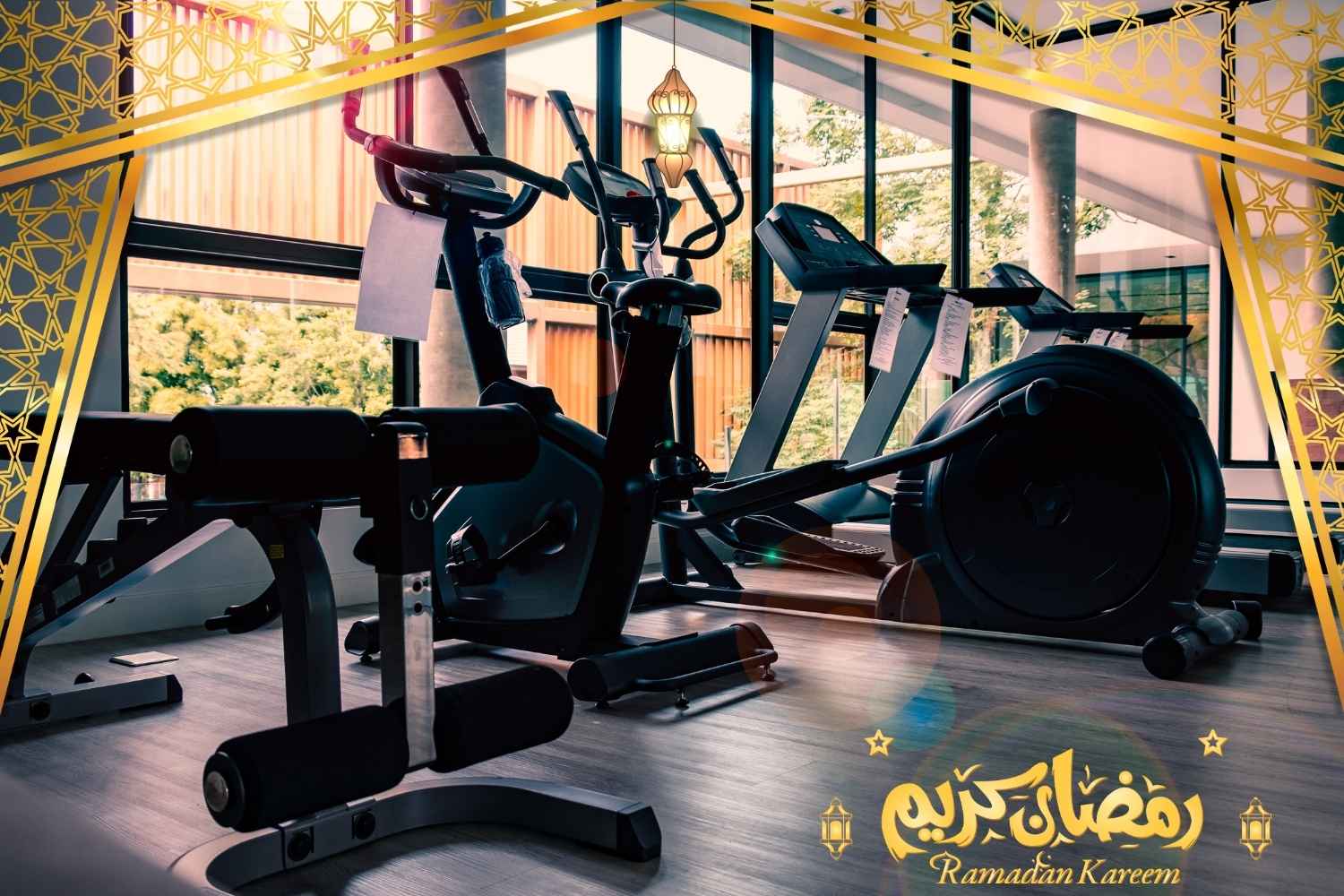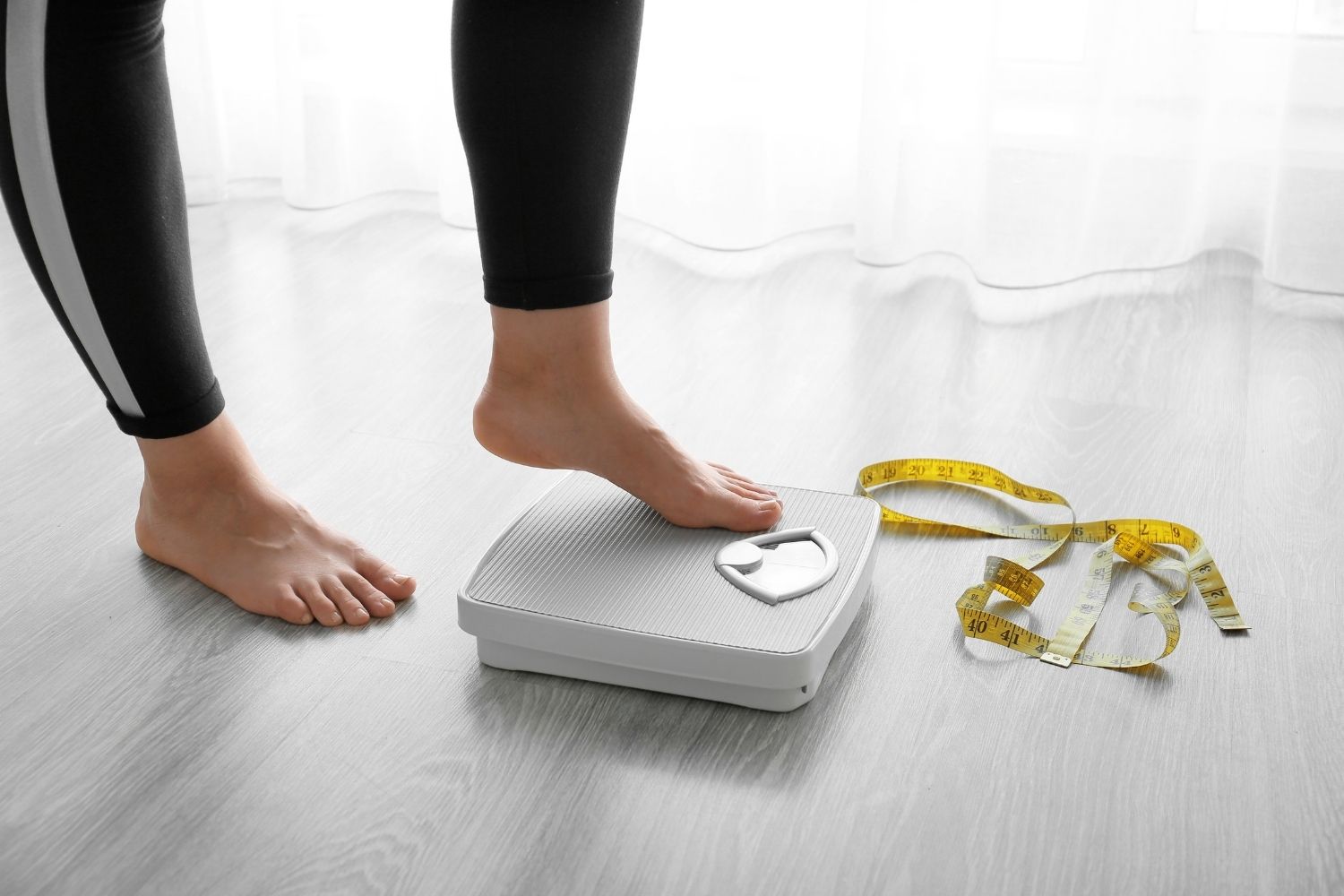Fasting all day, low energy, and no time to train? Sounds like fitness in Ramadan is impossible, right? Wrong! 🚀
You don’t need to lose muscle or skip workouts this Ramadan—what you need is a game plan. Studies show that fasting, when done correctly, can actually enhance fat metabolism, improve insulin sensitivity, and even increase growth hormone levels—all of which support muscle retention and fat loss.
However, many struggle because of dehydration, improper meal timing, and ineffective workouts. Without a strategy, energy drops, and workouts become exhausting instead of empowering.
In this guide, we’ll show you how to train at the best time, what to eat for Suhoor and Iftar, and how to recover fast—so you break your fast, not your gains! 💯🔥
Table of Contents
- How Fasting Affects Your Body & Fitness
- Best Workout Timing During Ramadan
- Healthy Breakfast Strategies After Fasting
- What to Eat for Suhoor to Stay Energized
- Snacks, Sweets & Traditional Ramadan Drinks
- Post-Iftar Workouts: Strength vs. Cardio
- Hydration Strategies to Prevent Fatigue
- Muscle Maintenance & Fat Loss While Fasting
- Essential Supplements for Strength & Energy
- Common Mistakes to Avoid in Ramadan Fitness
- Conclusion & Final Tips
How Fasting Affects Your Body & Fitness
Fasting triggers several physiological changes in the body, affecting energy levels, metabolism, hormone production, and muscle recovery. The body's primary fuel source, glycogen, becomes depleted during prolonged fasting, leading to a shift towards fat oxidation for energy. During fasting hours, insulin levels drop significantly, enhancing insulin sensitivity and improving the body's ability to utilize stored fat for fuel. This metabolic shift helps promote fat loss while preserving lean muscle mass when paired with the right nutrition and exercise. Additionally, fasting naturally boosts growth hormone production—up to fivefold in some cases—which plays a crucial role in fat metabolism, muscle preservation, and post-exercise recovery. However, prolonged fasting without proper nutrition can lead to muscle protein breakdown (catabolism), reduced energy levels, and decreased athletic performance. Ensuring adequate protein intake, strategic meal timing, and proper hydration can help prevent these negative effects and optimize Ramadan fitness results.

Best Workout Timing During Ramadan
Timing your workouts during Ramadan is crucial to ensure you maintain strength, muscle, and endurance without draining your energy. The best times to train depend on your fitness goals, meal timing, and personal energy levels.
🏋️♂️ Pre-Iftar Workouts (Right Before Iftar)
✔ Best for very light cardio, mobility work, or stretching ✔ Can support fat burning, but energy levels may be low, making it less effective for strength training ✔ Heavy lifting and intense workouts are not recommended due to high dehydration risk and low glycogen availability
Tip: If you must train before Iftar, keep it short (20-30 minutes), light, and focused on stretching or low-impact movement. Ideally, schedule workouts right before breaking your fast to minimize dehydration risks.
🍽️ Post-Iftar Workouts (1-2 Hours After Eating)
✔ Best for strength training and muscle building ✔ Allows for proper hydration and pre-workout nutrition ✔ More energy available for high-intensity workouts
Tip: Have a balanced Iftar meal with proteins, healthy fats, and complex carbs before training for maximum performance.
💡 Late-Night Workouts (Taraweeh-Friendly)
✔ Ideal for those who prefer training after digesting Iftar fully ✔ Avoids heavy exertion right after a meal ✔ Can be combined with resistance training or a moderate cardio session.

Verdict: If your goal is fat loss, light pre-Iftar workouts may help. If you’re aiming to build or maintain muscle, post-Iftar training is best. Choose what fits your schedule and energy levels!
Healthy Breakfast Strategies After Fasting
After hours of fasting, your body is in a depleted state, craving hydration, electrolytes, and essential nutrients. A proper Iftar meal should focus on restoring energy levels, rehydrating cells, and providing a steady source of fuel for muscle recovery and evening activities. A well-balanced Iftar meal should contain:
✔ Hydration First: Begin with 2-3 glasses of water, infused water, or coconut water to combat dehydration and restore electrolyte balance. Avoid sugary drinks that cause an insulin spike. ✔ Break Your Fast Right: Start with 1-3 dates, which provide a quick, natural sugar boost and help stabilize blood sugar. Soups (such as lentil or vegetable soup) aid in replenishing lost minerals and easing digestion after long fasting hours. ✔ Lean Protein for Recovery: Incorporate high-quality protein sources like grilled chicken, lean beef, fish, eggs, Greek yogurt, or lentils to help repair muscles and sustain energy. ✔ Smart Carbohydrates: Whole grains like brown rice, quinoa, whole wheat bread, and sweet potatoes provide a slow-release of energy, preventing post-Iftar crashes and supporting workout performance. ✔ Healthy Fats for Satiety: Adding avocados, nuts, olive oil, or seeds ensures proper nutrient absorption, hormone balance, and long-lasting satiety without bloating.

Tip: Stay away from deep-fried foods, processed sugars, and excessive caffeine at Iftar to prevent energy crashes and bloating. Opt for light, nutrient-dense meals to stay energized and fuel your workouts effectively.
What to Eat for Suhoor to Stay Energized
Suhoor is the most critical meal for sustaining energy, hydration, and muscle preservation during the fasting hours. Eating the right foods can help prevent extreme hunger, energy crashes, and dehydration while keeping you active throughout the day.
✔ Hydration is Key: Start with at least 2-3 glasses of water to kickstart hydration. Foods like cucumbers, yogurt, watermelon, and coconut water help retain water in the body and prevent excessive thirst later in the day. ✔ Slow-Digesting Carbs for Sustained Energy: Whole grains like oats, brown rice, quinoa, and whole-wheat bread provide a gradual release of glucose, keeping energy levels stable for longer hours. Avoid refined carbs that cause rapid energy spikes and crashes. ✔ High-Protein for Muscle Preservation: Include eggs, Greek yogurt, cottage cheese, casein protein, or lean meats to ensure a steady amino acid supply and prevent muscle loss during long fasting periods. ✔ Healthy Fats for Long-Lasting Fullness: Foods like avocados, almonds, chia seeds, flaxseeds, and peanut butter slow digestion and provide steady energy throughout the day. ✔ Electrolytes & Minerals for Hydration: Himalayan salt, coconut water, and potassium-rich foods (like bananas & dates) help balance electrolytes and prevent dehydration during fasting.

Tip: Avoid salty, fried, processed, or sugary foods at Suhoor, as they can cause early thirst, energy dips, and bloating during the day. Stick to whole, nutrient-dense meals for sustained energy!
Snacks, Sweets & Traditional Ramadan Drinks
Ramadan is synonymous with indulgent treats, and while it's impossible to ignore kunafa, basbousa, atayef, and traditional Ramadan drinks, consuming them strategically can help you enjoy them without derailing your fitness progress. The key is portion control, timing, and balance to prevent excessive sugar intake and energy crashes.
✔ Smart Snacking: Opt for nuts, Greek yogurt, dates, or dark chocolate instead of deep-fried snacks to curb cravings while keeping energy levels stable.
✔ Managing Ramadan Sweets: It's unrealistic to completely avoid sweets, so instead, adjust portion sizes and consume them right after Iftar or post-workout when your body can utilize the sugar more efficiently. Limit portion sizes to a small serving (2-3 bites) and balance it with fiber or protein to reduce blood sugar spikes.
✔ Traditional Ramadan Drinks: Popular drinks like Kamar al-Din, Jallab, Tamarind, and Hibiscus are loaded with sugar. Instead of completely avoiding them, dilute them with more water, use unsweetened versions, or prepare homemade alternatives with honey or natural fruit sugars to keep them healthier.
✔ Best Hydrating Options: Replace sugary drinks with infused water (with mint & lemon), fresh coconut water, sugar-free hibiscus tea, or herbal teas to help restore lost electrolytes, support digestion, and maintain hydration.

Tip: If you're craving kunafa, basbousa, or atayef, have them in controlled portions, after workouts or Iftar, and balance them with a source of protein (like Greek yogurt) or fiber to prevent sugar crashes!
Post-Iftar Workouts: Strength vs. Cardio
Exercising after Iftar gives your body the fuel and hydration it needs to perform optimally. But whether you should focus on strength training or cardio depends on your fitness goals, meal timing, and energy levels.
🏋️♂️ Strength Training (Best for Muscle Growth & Maintenance)
✔ Ideal 1-2 hours after Iftar when digestion is settled, ensuring better energy availability. ✔ Focus on compound movements like squats, deadlifts, and bench presses to maximize muscle engagement and optimize strength gains. ✔ Ensure adequate protein & carb intake before training ✔ Best for muscle retention and hypertrophy, as protein and carbs consumed at Iftar will support recovery and muscle repair.
🏃♂️ Cardio Workouts (Best for Fat Loss & Endurance)
✔ Can be done post-Iftar or late at night ✔ Low-intensity options (walking, steady-state cycling, or light jogging) help burn fat without depleting energy too quickly. ✔ High-intensity cardio (HIIT, sprinting, or fast-paced circuits) should be approached cautiously to avoid dehydration and energy crashes. Ensure proper hydration before attempting. ✔ Helps improve cardiovascular endurance and maintain fitness levels.

Tip: For muscle retention, prioritize strength training after Iftar when energy stores are replenished. For fat loss, stick to low-intensity cardio to prevent excessive fatigue and maintain steady fat burning. If your focus is fat loss, incorporate low-intensity cardio for sustainable results.
Hydration Strategies to Prevent Fatigue
Proper hydration is crucial during Ramadan to prevent fatigue, dizziness, muscle cramps, and decreased workout performance. Many people unknowingly make hydration mistakes, such as drinking large amounts of water right before Fajr, thinking it will keep them hydrated throughout the day. However, the body cannot store excess water, and drinking too much at once can lead to frequent urination, causing dehydration instead of preventing it. To keep your body hydrated and functioning optimally, follow these hydration strategies:
✔ Smart Water Distribution: Aim for at least 2.5–3 liters of water gradually between Iftar and Suhoor. Instead of drinking excessive amounts before Fajr (which leads to quick water loss), distribute your intake like this:
- 2-3 glasses at Iftar
- 1-2 glasses between Iftar & Taraweeh
- 1-2 glasses before bed
- 2 glasses at Suhoor This approach helps sustain hydration levels longer and prevents frequent dehydration. ✔ Replenish Electrolytes for Lasting Hydration: Fasting depletes electrolytes like sodium, potassium, and magnesium, which can lead to muscle cramps and fatigue. To replenish them, include Himalayan salt, coconut water, unsweetened electrolyte drinks, or potassium-rich foods like bananas and dates. ✔ Hydration from Food: In addition to water, consuming high-water-content foods like cucumbers, watermelon, oranges, zucchini, and yogurt can help keep hydration levels stable. ✔ Avoid Dehydrating Drinks: Caffeinated beverages like coffee and strong tea act as diuretics, causing your body to lose water faster. If you need caffeine, limit intake to one small cup after Iftar, and always compensate by drinking extra water. ✔ Strategic Water Timing: Drink water steadily between Iftar and Suhoor, ensuring you start and end your fasting period hydrated. We are not camels! Drinking 3 liters of water just before Fajr won't be stored for the next day. Instead, you'll spend the next 2-3 hours running to the bathroom. 🏃♂️🚽 Use smart hydration by spreading your water intake evenly throughout the non-fasting hours!

Tip: Sip water gradually rather than chugging large amounts at once. Also, reduce salty, fried, and overly spicy foods at Suhoor, as they can increase thirst and lead to dehydration.
Muscle Maintenance & Fat Loss While Fasting
Fasting during Ramadan doesn’t have to mean losing muscle or slowing fat loss. With the right approach, you can maintain strength, prevent muscle breakdown, and even optimize fat burning while fasting. Here’s how:
💪 How to Maintain Muscle While Fasting
✔ Prioritize Protein Intake: Aim for at least 1.6–2.2g of protein per kg of body weight spread across Iftar, post-workout, and Suhoor. ✔ Strength Train Smart: Focus on compound movements (squats, deadlifts, bench press) and reduce workout volume to prevent overtraining. ✔ Use Casein or Slow-Digesting Proteins: Casein protein or high-protein foods before Suhoor provide a steady supply of amino acids during fasting hours. ✔ Don’t Neglect Carbs & Healthy Fats: A balance of complex carbs and healthy fats supports energy levels and prevents muscle depletion.
🔥 Fat Loss Without Losing Strength
✔ Train at the Right Time: Strength training post-Iftar and light cardio pre-Iftar can help maximize fat burning. ✔ Maintain a Caloric Deficit Without Starving: Ensure enough protein & fiber intake while reducing unnecessary calories. ✔ Hydration is Key: Dehydration can slow metabolism and hinder fat loss—follow a strategic water intake plan. ✔ Avoid Processed Sugars & Excessive Fats: Swap traditional Ramadan sweets for fruit, nuts, or protein-based snacks to prevent fat gain.

Tip: Focus on maintaining muscle mass instead of just cutting weight. Losing muscle slows metabolism, making long-term fat loss harder. Stick to protein-rich meals, strength training, and hydration for the best results!
Essential Supplements for Strength & Energy
While whole foods should be the foundation of your nutrition, the right supplements can help fill nutritional gaps, support muscle retention, and sustain energy during fasting hours. Here are the most effective supplements to consider:
🥤 Whey Protein – Rapid Recovery & Muscle Support
✔ Best for: Post-Iftar muscle recovery & quick protein intake
✔ When to Take: 30-60 minutes after Iftar or post-workout
✔ Optimal Dose: 25-30g per serving
✔ Why? Whey protein is fast-digesting, helping repair muscles quickly and prevent catabolism after a long fasting period.
❌ Misconception: Some believe whey protein is unnecessary if they eat meat or dairy, but with limited eating windows, supplementing ensures adequate protein intake.
🌙 Casein Protein – Overnight Muscle Protection
✔ Best for: Muscle retention & prolonged amino acid release
✔ When to Take: Before Suhoor
✔ Optimal Dose: 30-40g per serving
✔ Why? Casein digests slowly over 6-8 hours, preventing muscle breakdown during fasting. It also keeps you full longer, making it ideal before Suhoor.
❌ Misconception: Some think casein is only for bodybuilders, but it’s beneficial for anyone wanting muscle preservation and prolonged satiety.
⚡ Creatine – Strength & Hydration Support
✔ Best for: Strength, endurance & reducing fatigue
✔ When to Take: Post-Iftar (daily, regardless of workout)
✔ Optimal Dose: 5g per day
✔ Why? Creatine improves muscle hydration, strength, and power output, making workouts more effective even when fasting.
❌ Misconception: Some think creatine causes dehydration, but in reality, it helps with water retention inside muscles, improving hydration.
🔥 Pre-Workout – Fighting Iftar Sluggishness
✔ Best for: Boosting energy & focus for post-Iftar workouts
✔ When to Take: 30 minutes before training (post-Iftar only)
✔ Optimal Dose: Based on tolerance, 150-200mg caffeine if included
✔ Why? After Iftar, meal sluggishness can reduce motivation to train. A pre-workout supplement enhances focus, stamina, and endurance.
❌ Misconception: Many avoid pre-workouts during Ramadan fearing dehydration, but choosing a non-stimulant version or hydrating well minimizes risks.
Try Nutrascia Avanced Casein Now

Final Tip:
👉 Prioritize whole foods first, then supplement based on your needs. Stick to essentials like whey, casein, creatine, and hydration-focused supplements to optimize performance and recovery during Ramadan.
Common Mistakes to Avoid in Ramadan Fitness
Even with the best workout and nutrition plan, making a few key mistakes can slow progress, cause fatigue, or even lead to muscle loss. Here are the biggest fitness mistakes people make during Ramadan:
❌ Overeating at Iftar & Choosing the Wrong Foods
✔ Breaking the fast with high-sugar, deep-fried, and processed foods leads to bloating, energy crashes, and poor digestion. ✔ Fix it: Start with hydration and whole, balanced meals that include protein, complex carbs, and healthy fats.
❌ Skipping Suhoor (or Eating Too Little)
✔ Suhoor is essential for energy, hydration, and muscle preservation throughout the fasting hours. ✔ Fix it: Prioritize protein, slow-digesting carbs, and healthy fats for sustained energy and hunger control.
❌ Training at the Wrong Time & Overexerting While Fasted
✔ High-intensity workouts pre-Iftar can lead to dehydration, dizziness, and muscle breakdown. ✔ Fix it: Strength training is best post-Iftar when energy levels are restored. Light activities like walking or mobility work are more suitable pre-Iftar.
❌ Not Drinking Enough Water
✔ Many people drink large amounts of water right before Fajr, thinking it will keep them hydrated—but the body can’t store excess water! ✔ Fix it: Spread out 2.5-3 liters of water evenly between Iftar and Suhoor, including hydrating foods and electrolyte sources.
❌ Ignoring Protein Intake & Muscle Loss
✔ Fasting for long hours without adequate protein intake can lead to muscle breakdown. ✔ Fix it: Ensure 1.6–2.2g of protein per kg of body weight spread across Iftar, Suhoor, and post-workout meals.
❌ Not Sleeping Enough & Poor Recovery
✔ Skipping sleep or getting inconsistent sleep increases fatigue, affects recovery, and reduces workout performance. ✔ Fix it: Aim for 6-8 hours of quality sleep, even if it’s split between night and daytime naps.
Tip: Ramadan is about balance—avoid extreme diets or excessive training. Listen to your body, fuel it wisely, and train smart!
Conclusion & Final Tips
Staying fit and maintaining muscle during Ramadan is completely achievable with the right approach. Whether you're aiming for muscle retention, fat loss, or sustained energy, following the best Ramadan workout and nutrition strategies will help you stay on track. By focusing on smart nutrition, proper hydration, strategic workout timing, and essential supplementation, you can ensure steady energy levels, muscle retention, and improved performance throughout the month.
✅ Key Takeaways:
✔ Workout Timing Matters: Strength training after Iftar is ideal, while light activity before Iftar can support fat loss. ✔ Prioritize Protein Intake: Spread whey, casein, and whole-food protein sources across Iftar and Suhoor to maintain muscle mass. ✔ Hydration is Key: Avoid drinking excessive water before Fajr—instead, distribute 2.5–3 liters of fluids throughout non-fasting hours. ✔ Smart Carb & Fat Choices: Stick to slow-digesting carbs at Suhoor and healthy fats to sustain energy levels. ✔ Avoid Common Pitfalls: Don’t skip Suhoor, overeat fried foods, or neglect sleep, as these can impact performance and recovery.
Ramadan is about balance—don’t stress about perfection, but aim for consistency. Listen to your body, fuel it wisely, train smart, and stay hydrated. Keep these strategies in mind, and you’ll exit Ramadan stronger, leaner, and energized! 💪🌙
Frequently Asked Questions
Can I gain muscle while fasting in Ramadan?
Yes! If you consume enough protein and train at the right time, muscle gain is possible.
What is the best time to work out in Ramadan?
Post-Iftar is best for strength training, while light cardio before Iftar can aid fat loss.
How much water should I drink in Ramadan?
Aim for 2.5-3 liters of water, distributed evenly between Iftar and Suhoor to prevent dehydration.
Is it okay to do high-intensity workouts while fasting?
High-intensity workouts should be done post-Iftar to avoid dehydration and excessive fatigue.
What are the best supplements to take during Ramadan?
Whey protein, casein, creatine, and electrolytes help maintain muscle, hydration, and energy levels.
How can I prevent muscle loss while fasting?
Eat enough protein, do resistance training post-Iftar, and ensure proper hydration.
Should I eat sweets and traditional Ramadan drinks?
Yes, but in moderation! Consume them post-workout or after Iftar to minimize sugar spikes.
What’s the best way to balance workouts, nutrition, and fasting?
Plan your meals with protein and healthy fats, train smartly post-Iftar, and stay hydrated.




Leave a comment
All comments are moderated before being published.
This site is protected by hCaptcha and the hCaptcha Privacy Policy and Terms of Service apply.